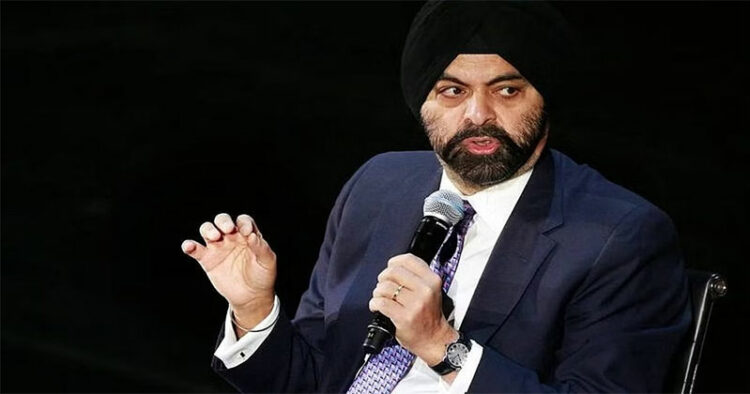Ajaypal Singh Banga, nominee of US President Joe Biden to head the multi-lateral World Bank, has his task cut out. Banga may not turn out to be a traditional banker in the sense like many of his predecessors, nor does he have experience of the US treasury like the present incumbent David Robert Malpass who would complete his term by June end.
But Ajay Banga, 63 and son of a former Indian Army officer has all the credentials to flaunt and take charge of the World Bank at a very crucial juncture on geo-political front and the world of finance, banking and markets.
God willing and other stakeholders support, Banga will head the bank beginning July 1 this year.
Banga does not mince words to say that he’s ‘made in India’ referring to his modest Indian origins. He’s for long been poster boy of the Wall Street and a brilliant mind who as a naturalized US citizen is considered ‘compassionate banker par excellence’ by the democratic White House.
His eventful innings at Master Card, Citibank, KFC, Pizza Hut and Nestle provider the requisite experience to lead the World Bank that’s considered ‘a big boys club’ which is either inaccessible or provides limited linkages to the least developed or developing small economies.
Democratising leviathan World Bank may be a daunting task for even Banga who admits to making ‘easy friends’ all over. Biggest challenge may come from the most powerful industrial countries that are unwilling to let go of their strangle hold on this Bretton Woods institution of 1944 vintage which came into being as post-world war workhorse.
Turning the World Bank relevant and expanding its footprint in today’s world of development finance sans apprehensions by humanity is a challenge which Banga may have to face once he occupies the corner room.
Providing ‘humane development face’ to the institution largely regarded rudderless and seen as one that pushes the countries it engages into unsustainable indebtedness is yet another challenge.
Reforms at World Bank that progressed at sluggish pace or rather not taken off must be hastened. These reforms and World Bank’s governance must get aligned to current realities where large developing countries like India emerged with formidable economic strength and on way to achieve $5 trillion size.
Both voting rights and actual shareholding in World Bank institutions like IBRD, IDA, MIGA and IFC must reflect the change agent that the organization aspires to achieve lifting itself over narrow powerful coteries.
India may not be the only country that would look for better foothold and say in World Bank’s governance. Countries like South Africa and Brazil have periodically aired their grievances. Toughest nut to crack for Banga would be to deny US the veto vote on World Bank board thereby delinking shareholding from vote share.
Reformed World Bank should kick off restructuring in the other multilateral organization, International Monetary Fund (IMF). Yet another vintage institution that’s incorrigible and invokes more of fear and scare for countries seeking restructuring support rather than turning a helping hand without hassles.
Litmus test for Ajay Banga will be when the war torn Ukraine seeks the support of World Bank and IMF to rebuild itself after having engaged in a conflict with Russia.
Non-NATO forces are bound to resist World Bank support to Ukraine that may try and pick up pieces to build a new country. In case Russian side continues to veto proposals for ending the conflict, then rebuilding Ukraine may turn that much difficult as well.
Committing World Bank to climate finance for countries that seek to go full throttle in energy transition and address climate change issues is something that Ajay Banga can take lead in.
Financing technology development, transfers and providing cost-effective funds to facilitate this transition is something Banga can push big time.
Prime Minister Narendra Modi flagged the issue with finance ministers and central bank governors from G-20 group that met in Bengaluru recently. Countries like India will alone need a whopping $2.5 trillion in green finance to achieve national development goals and another $ 10 trillion by 2070 to achieve net zero emissions.
Climate finance is huge business that cannot be foregone by World Bank under Ajay Banga. And, he has to gear up to meet the opportunity and challenges to finance greening of economies.
Given his inroads into corporate world and private equity markets, evolving IFC as the largest financing avenue for both private sector debt and equity can be enlisted as a priority.




















Comments